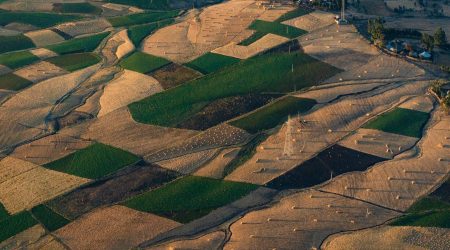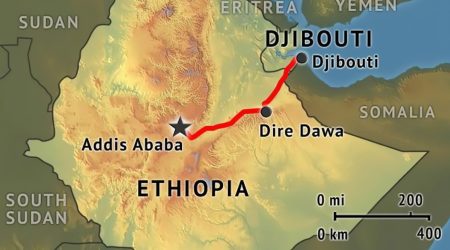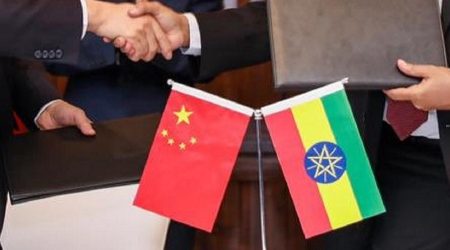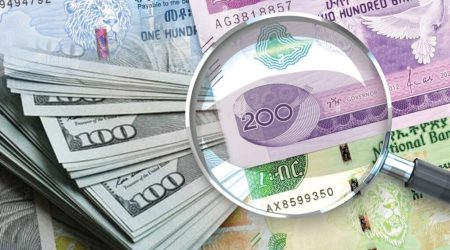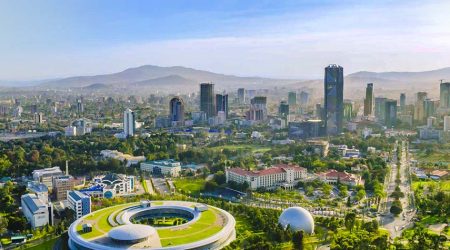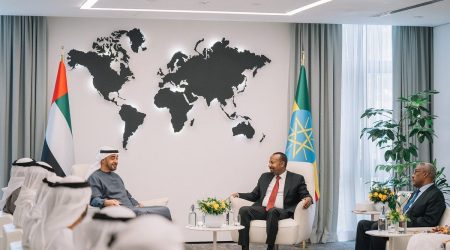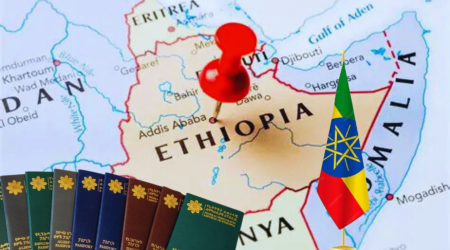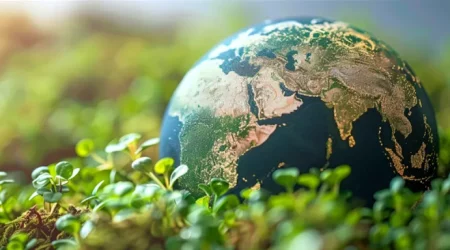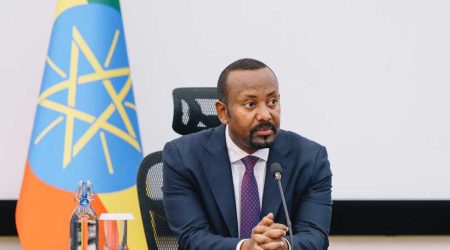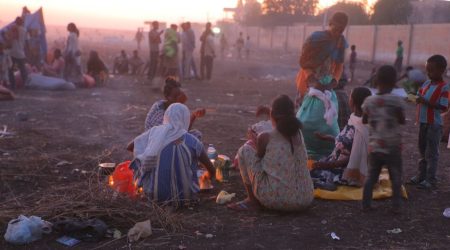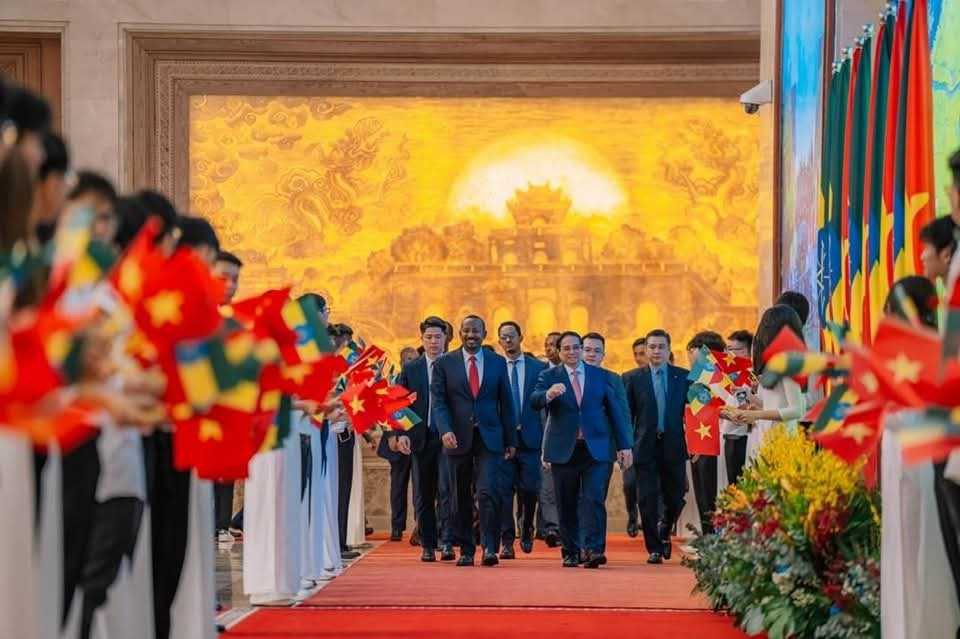
18
Apr
Ethiopia-Vietnam’s Bond: Beyond Bilateral Cooperation to Shared Future Aspirations
Ethiopia’s foreign policy framework was significantly redesigned in 2018 to combine all aspects of the country’s engagement with the rest of the globe. Ethiopia’s foreign strategy now prioritizes various alignments, flexible partnerships, and issue-based engagement. Since entering office in 2018, Ethiopia’s current leadership has worked to develop diplomatic connections with its neighbors in the Red Sea area, the Middle East, and the Indo-Pacific.
Ethiopian Prime Minister Abiy Ahmed and First Lady Zinash Tayachew arrived in Hanoi on the invitation of Vietnamese Prime Minister Pham Minh Chinh, accompanied by ministerial members, for a four-day official visit from April 14 to 17, 2025. As indicated by PM Abiy’s current visit to Vietnam, Ethiopia and Vietnam’s bilateral ties are at a key crossroads, with the former acknowledging historical diplomatic links and the latter building new ones for the future. PM Abiy’s visit to Vietnam is the first formal visit by an Ethiopian head of government since diplomatic relations were established in 1976, reflecting both countries’ strategic vision and desires to enhance their bilateral relationships in a new stage of development. Therefore, this commentary highlights Ethiopia-Vietnam’s bond beyond bilateral cooperation for a common future aspiration in terms of their historical contact and future aspirations, bilateral economic cooperation, strong multilateral collaborations, and shared green movement strategies.
Historical Backgrounds: Diplomatic relations between Vietnam and Ethiopia began on December 23, 1976, and have remained friendly throughout the subsequent fifty years. Tran Dai Quang, the then-President of the Socialist Republic of Vietnam, visited Ethiopia from August 23 to 25, 2018, while serving as Vietnam’s ninth president, and congratulated Abiy Ahmed on his election as Ethiopia’s Prime Minister at the meeting in Ethiopia. Both leaders recognized Vietnam and Ethiopia’s long-standing friendship and emphasized the importance of strengthening political confidence between the two countries through regular visits and contacts at all levels through the channels of the Party, the Government, the National Assembly, the local people, the people and businesses of the two countries, and to expand trade, investment, agriculture, education, and training[1]. After seven years, PM Abiy Ahmed and his high-level delegation are on an official visit to Vietnam, where the Vietnamese Prime Minister Phạm Minh Chính presided over an official welcome ceremony at the Presidential Palace on Tuesday, April 14. This is not only the first high-level delegation exchange between the two countries in seven years, but it is also the first visit to Vietnam by a senior Ethiopian official since the two countries’ diplomatic relations began in 1976. The two countries were preparing to mark the 50th anniversary of their diplomatic relations in 2026, when the visit would take place. This would be a significant turning point, demonstrating respect for the almost 50-year-old partnership and cooperation. According to these historical perspectives, PM Abiy Ahmed’s visit exemplifies the two countries’ strategic vision and commitment to promote and expand bilateral relations in the new era of prosperity. In particular, the two countries could thoroughly examine the areas of collaboration while also exchanging ideas and creating a more substantial and successful framework for cooperation in the future. As a result, PM Abiy’s visit represents a watershed moment in their bilateral ties, deepening the friendly strategic relationship, broadening the comprehensive strategic cooperative partnership, and fostering a greater community with a common destiny for Ethiopia and Vietnam.
Economic Cooperation: economically, Ethiopia has recognized Vietnam as a market economy since 2014, with bilateral commerce ranging from USD 10-15 million during the last four years. However, economic, commercial, and investment contacts between Vietnam and Ethiopia remain modest and fall short of their potential, as do political and diplomatic relations. Considering global economic swings and trade tensions, the two nations should encourage conversation and understanding to diversify markets and establish favorable conditions for economic, trade, and investment cooperation. Vietnam News Agency (VNA) cited, Vietnamese Ambassador to Tanzania and Ethiopia, as saying that the visit is “expected to accelerate negotiations on key agreements in such areas as trade, investment, aviation, science and technology, agriculture, and cybersecurity.” During this visit, PM Abiy Ahmed also underscored that “Ethiopia and Vietnam share many commonalities — as developing nations with large, dynamic youth populations, and both are committed to economic growth and united by a proud history of resilience.”
As a result, the current PM Abiy’s visit to Vietnam suggests that the two countries are engaging and in-depth, reflecting a shared commitment to mutual growth and cooperation to pave the way for strengthened political, diplomatic, and economic ties that will further solidify their joint vision for deeper bilateral relations in today’s global context. In terms of economic cooperation, both Ethiopia and Vietnam have a great potential of economic and trade development that further promotes their bilateral cooperation with the commitment of creating favorable conditions for both countries’ companies so that they can approach each other’s respective markets, and encouraging investment opportunities, cooperation in areas where the two countries are strongly represented.
Robust multilateral collaboration: for over 50 years, diplomatic relations between Vietnam and Ethiopia have been constructive, with mutual support in regional and global forums. The two nations have shared perspectives on regional and international issues having a significant presence and standing in the United Nations, regional and international organizations. They both provided significant contributions to South-South cooperation, enhanced the non-aligned movement, and emphasized the importance of developing nations in the international community.The two sides regularly support each other at multilateral forums and international organizations. For instances, Vietnam highly valued Ethiopia as a non-permanent member of the United Nations Security Council for the 2017-2020 term, thus contributing to the UN agenda that contributed to this building, consolidating security and peace in the world. Ethiopia noted that Vietnam is the sole candidate for the Asia-Pacific region for the position of non-permanent United Nations Security Council member for the 2020-2021 term. [2] Specifically, when Ethiopia was under pressure from the international community in connection with the war in the northern parts of Ethiopia at the United Nations, Vietnam, through its Permanent Representative to the UN, Ambassador Đặng Đình Quý, was one of the countries that opposed intervention in the internal affairs of the country.
As a result of this visit, the two sides reiterated their willingness to strengthen cooperation in a variety of sectors and collaborate for prosperity and development in the Asia-Pacific and African regions. Furthermore, Ethiopia’s strategic geographical location allows for a strengthening of Vietnam’s collaboration with Africa, as well as the bridging of connections between Vietnam and the African Union, while Vietnam might operate as a bridge to improve ASEAN-Ethiopia cooperation.
Mutual green growth agenda: Both Vietnam and Ethiopia are members of P4G – Partnering for Green Growth and the Global Goals 2030, a new initiative launched in 2018 with the ambition of becoming the world’s leading forum for developing concrete public-private partnerships at scale to deliver on the SDGs and the Paris Climate Agreement.[3] Aside from meetings with senior government officials to discuss bilateral relations as well as regional and international issues of mutual concern, PM Abiy Ahmed welcomed and supported Vietnam’s successful hosting of the 4th P4G Summit, emphasizing its contribution to global efforts for green and sustainable development. PM Abiy attended the fourth P4G Summit, 2025, conducted under the theme “Sustainable and People-Centred Green Transition,” and presented a keynote speech stressing three important action items critical to achieving climate action, as indicated on his official Social Media page. The first step is to prioritize climate financing by ensuring enough, reliable, and sustainable resources. The second goal is to boost Africa’s share of global energy investment from 2% to 20% by 2030, therefore supporting sustainable development and protecting the continent’s important ecosystems. The third point is that urgent actions are required to safeguard nature by addressing biodiversity loss and land degradation. This involves sponsoring grassroots projects like the Green Legacy Initiative, as well as ensuring that local communities have fair and equitable benefit-sharing arrangements.
PM Abiy Ahmed’s speech demonstrates Ethiopia’s intention to collaborate with Vietnam to support global initiatives on climate change response, green growth, innovation, and sustainable development, while also promoting local initiatives such as Ethiopia’s green legacy since 2018. As a result, because both Vietnam and Ethiopia are rapidly developing countries with a shared commitment to innovation, green transition, and digital transformation as key drivers of long-term economic growth, and to help each other achieve these goals, the two countries can implement a variety of concrete measures for sharing knowledge and best practices. Therefore, strengthening collaboration, particularly in green sectors, renewable energy, and digital technology, would not only contribute to long-term solutions but also provide job opportunities in both nations. Investment potential in renewable energy, high-tech agriculture, and green sectors can also be expanded, laying the groundwork for long-term collaboration between the two countries.
Conclusion
PM Abiy’s travel to Vietnam is the first formal visit by an Ethiopian head of government since diplomatic ties were established in 1976, and it is also the first high-level delegation exchange between the two nations in seven years. Ethiopia and Vietnam have expanded their practical collaboration in several sectors since 2018, laying the groundwork for the formation of a strategic relationship with a common objective. As a result, the visit demonstrates that Ethiopia and Vietnam share a connection that extends beyond bilateral cooperation for a common future objective, encompassing robust multilateral partnerships, bilateral economic cooperation, policies related to the green movement, historical ties, and future goals.
Economic and trade relationships between the two sides have achieved new heights, but the synergy of their economic cooperation policies must be improved. Solidarity and collaboration are more important than ever as the globe experiences rapid changes not seen in a century and peace and development confront increasing obstacles. Vietnam and Ethiopia have continued to be outspoken supporters of multilateralism and have actively participated in regional and global collaboration to address shared issues and advance prosperity.
Amid a complicated and turbulent geopolitical landscape, Ethiopia and Vietnam should enhance their comprehensive strategic partnership and inject greater predictability and stability into their respective regions. In addition to being crucial to establishing diplomatic ties between Ethiopia and Vietnam with a shared future that holds strategic importance, it is also a necessary step to advance cooperation and development in a way that clearly demonstrates the spirit of proactive, responsible cooperation and joint development for the benefit of both nations.
Commentary
Debela Fituma Mamo is a PhD candidate at Institute of Peace and Security Studies of Addis Ababa University, Ethiopia. He also works as a researcher at the Institute of Foreign Affairs. His research focuses on peace and security, comparative politics, political transitions, and indigenous knowledge systems. He has written several research articles and book reviews.

